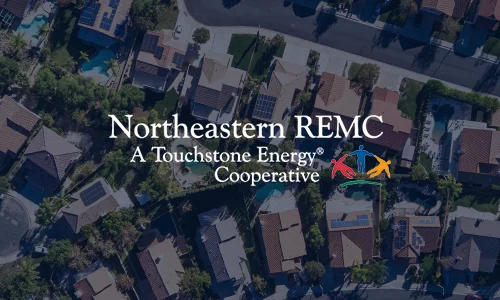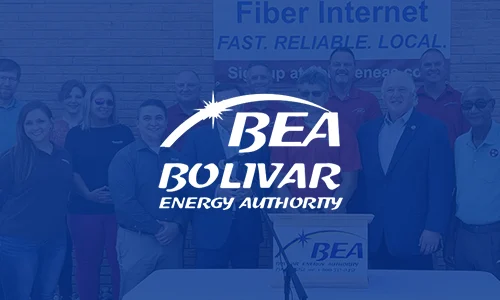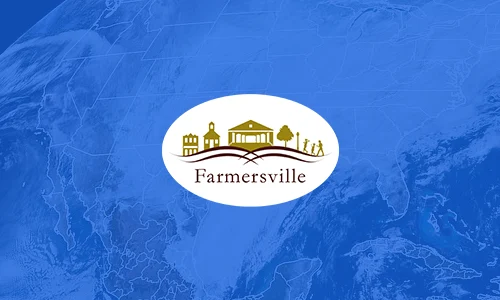Columbia City, Indiana | Touchstone Energy Cooperative | 26,000 members / 500 C&I
Challenge: Strategic AMI Deployment
Within Northeastern REMC’s service are specific customers for which AMR offered the greatest immediate benefit. Dispersed throughout the 765 square mile territory are C&I clusters where real-time usage and power quality monitoring would prove valuable for the customer as well as the utility, remote farms where meter reading is costly and high turnover locations that regularly require off-cycle reads. To target these members using PLC would require the build-out of numerous substations and a significant investment in infrastructure and time.
Solution: Large Footprint RF Coverage
The TUNet network provides two-way, real-time communications throughout Northeastern’s service territory. The utility can add locations or applications where and when it makes sense without adding more infrastructure. The wireless network combines a long-range, cost-effective 220 MHz WAN with a 900 MHz LAN that coordinates communication within clusters of endpoints. The hybrid network enables Northeastern to strategically deploy TUNet modules at locations such as remote farms and communities where the cost of field service is comparatively high.
Results: Deployment & Operational Efficiency
The first phase roll out called for TUNet-enabled meters to be placed at extremes within the service area. Northeastern’s objective was to determine the extent of coverage and whether wireless communication worked over long distances and to sparsely populated areas.
The Tantalus system is providing excellent visibility to the most remote endpoints. Rather than making costly, incremental steps out to the edges of its service area before implementing advanced metering, Northeaster gains blanket coverage and the freedom to deploy advanced applications where and when they are needed most. The operational flexibility of TUNet helps Northeastern to continue to deliver superior service and operational excellence. The long-term value is that the network is in place so that minimal infrastructure is needed to support follow-on applications or additional endpoints to accommodate both single- and polyphase metering.
As the first step toward full deployment, Northeastern targeted high consumption commercial & industrial accounts such as large retail outlets, manufacturing facilities and schools. This enables the utility to enhance customer service to C&I users, provide more rapid support during critical periods, eliminate the cost of manual meter reads and gain the detailed data needed to support complex dynamic rate structures. Real-time, online monitoring of voltage and power quality can be used to detect malfunctioning equipment, which helps ensure “always on” energy availability.
“With TUNet, we can introduce advanced functionality where & when it makes sense, and gain maximum benefits from these investments with minimal effort and infrastructure built up.”
Jim Eitsert, Engineering Supervisor
TUNet Results
- Minimal infrastructure required for territory-wide coverage
- Surgical deployment of polyphase metering and remote disconnect at locations of its choosing
- Sufficient bandwidth and system flexibility for full AMI deployment and follow-on applications
- Access to full spectrum of advanced functionality such as outage reporting, on-demand & interval reads, power quality monitoring
- Provide more responsive customer service without impacting costs and working conditions
- Winner: EnergyBIZ KITE Award 2008 for Technology Innovation – Small Utility




